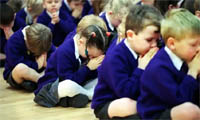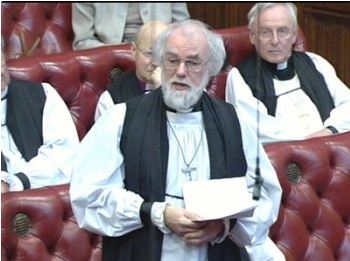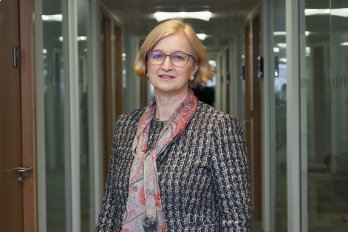Religious Freedom and its Limits
Cornwall Humanists enjoyed a very interesting talk on Zoom at 7pm on Tuesday 21st September, given by the National Secular Society. Stephen Evans, Chief Executive Officer of the National Secular Society, talked about religious freedom and its limits.

Photo by Don McPhee
Stephen told us that the National Secular Society defends everyone’s freedom of religion and belief.
Everyone should have freedom to believe whatever they wish. This is confirmed by the United Nations Charter of 1948, in Article 18, “Everyone has the right to freedom of thought, conscience and religion.”
However there are areas of human life where balances need to be struck between the undoubted rights of people to practise their religion, and possible harms that might result from certain religious beliefs.
Stephen gave the Jehovah Witnesses’ opposition to blood transfusions as an example, where the parents’ religious belief could result in the death of a child in their care.
It has been decided by the courts that the child’s right to life, takes precedence over the parental rights of religious belief.
In the world of work British Airways failed to prevent a Christian employee, Nadia Eweida, from wearing a visible cross at work, because their policy was found to be inconsistent regarding other religious symbols. By contrast the NHS were successful in preventing nurse Shirley Chaplin, from wearing a crucifix at work.
There are differing views on how animals should be slaughtered, before their meat is eaten.
The majority of meat certified as Halal is stunned before slaughter, but no prior stunning is permitted in the rules of Kosher slaughter. It would be possible to label meat, to show if the animal had been stunned prior to slaughter, allowing the buyer to make a choice.
Another example Stephen gave was the religious practice of surgery on the genitals of children. It seems widely accepted in the UK that operations on girls, known as FGM (female genital mutilation) is unacceptable, and it is illegal in the UK. But circumcision of boys is not illegal in the UK, although there is no medical benefit, for boys or girls, while there is sometimes serious harm resulting from surgery.
In the case of Batley Grammar School, a teacher used a caricature image of the Prophet Mohammed as part of a lesson. This caused offence to some people of the Muslim faith, who protested at the school. The Trust which runs the school has said that it wishes to ensure that offence is not caused, but Stephen feels that an Islamic blasphemy code has been quietly imposed at this school.
The right of freedom of religion and belief is accepted, but Stephen suggested that there also needs to be freedom from religious belief.
Peter Wood 23rd September 2021
Comment
Daily, compulsory, Christian worship in our schools does not seem to strike a fair balance between the freedom of religion, and the freedom from religion.


